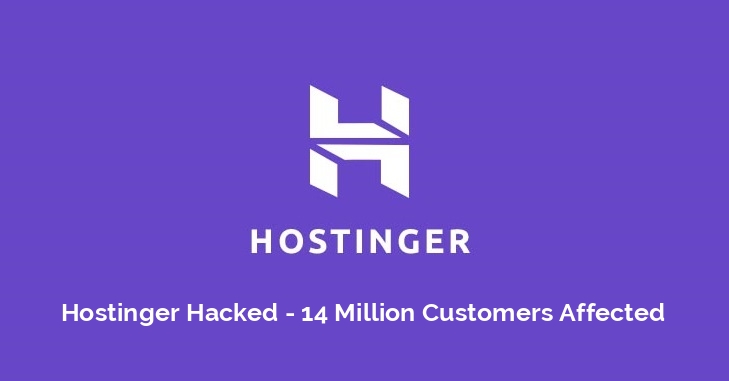Hostinger announced a major data breach that affected nearly 14 million customers, and it reset all the client’s password as a precaution measures.
Hostinger is one of the leading web hosting services provider and Internet domain registrar that provide services over 29 million users in 178 countries
cybercriminals bypass the Hostinger’s internal networks, and gained unauthorized access to internal system API which allows attackers to access hashed passwords, and some of the other sensitive data.
Hostinger said that there is no financial data involved this security breach and the vulnerable systems access has been terminated.
Hackers Gained the Internal System Access
Hostinger received an alert on August 23rd, 2019 that indicates unauthorized third access to one of their servers which contains an authorization token.
The token has allowed access and escalates the privilege to system RESTful API Server, which is used to query the details about our clients and their accounts.
According to Hostinger press release report “The API database contains various sensitive customers data including Client usernames, emails, hashed passwords, first names and IP addresses and the database table contains the information about 14 million Hostinger users.”
There is no financial data such as credit/debit card data involved with this incident since the Hostinger using third-party payment providers for the payment process for its services.
After they learned this incident, Hostinger has been reset all the customer’s password and sent an email to all the customers to reset the password.
Other than this, there are no other partners websites, domains, hosted emails are affected.
The company started the investigation with security exports, internal/external investigators to analyze the incident to increase the security protocols and learn the motivation of this breach and apply the strong security measures to prevent from the future Cyber attacks.










